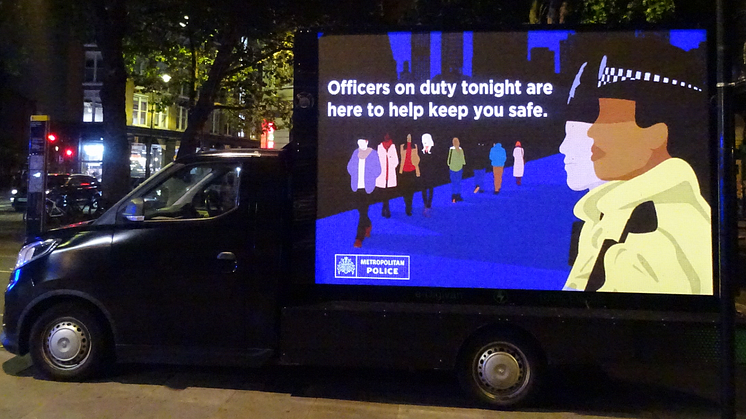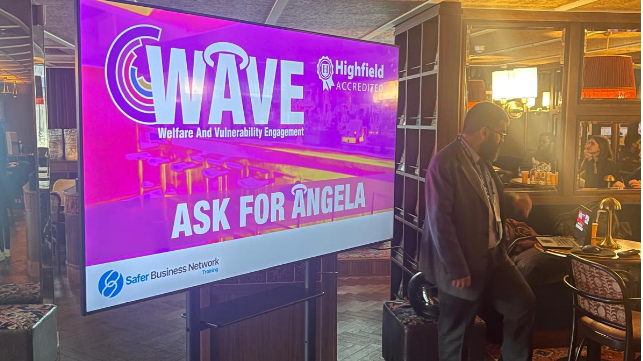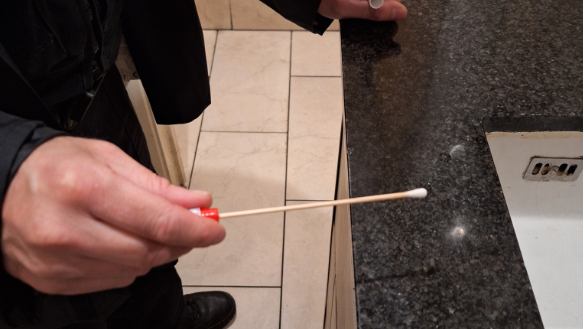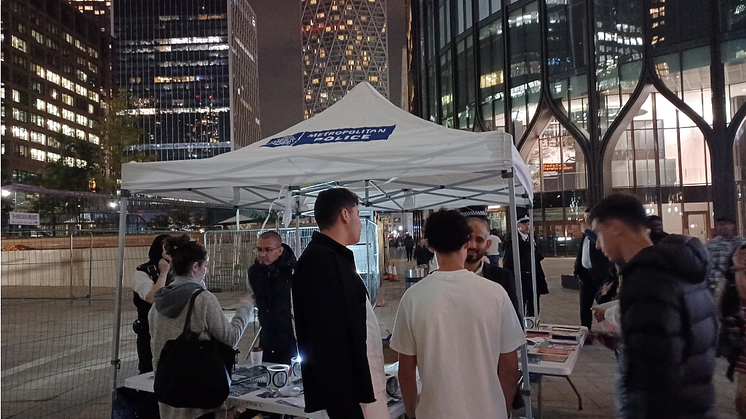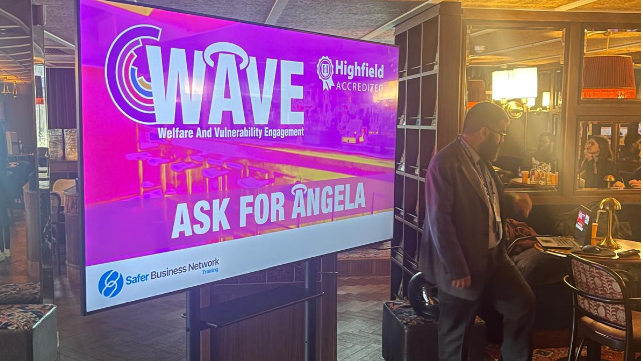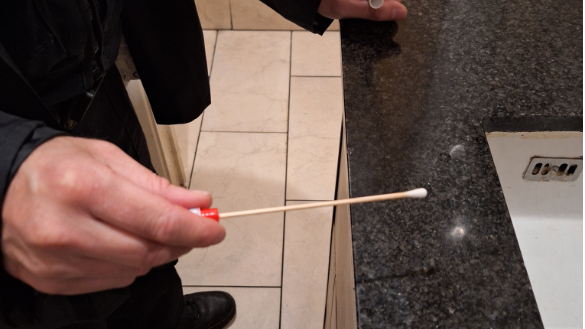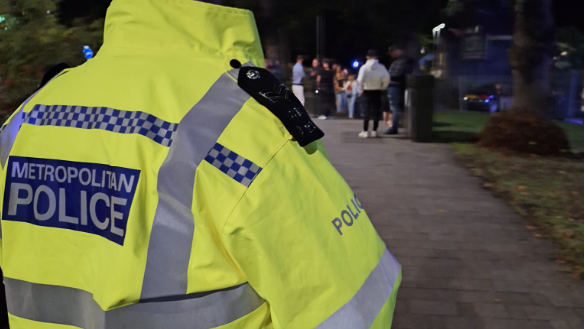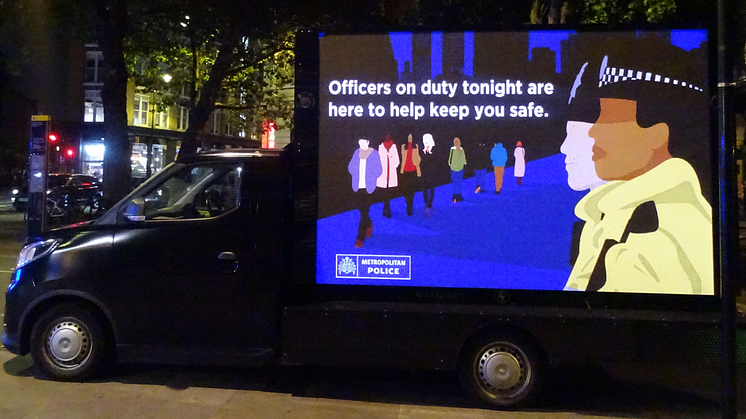
News -
Met officers stamp out predatory behaviour in south London
Officers in Bexleyheath joined with partners to safeguard students from spiking and violent crime while out socialising during Freshers week.
This comes as part of the Met’s commitment to protect the public from harm and combat dangerous predators across London.
On the evening of Friday 27, September local officers patrolled the busy street of Sidcup and Bexleyheath Broadway, to raise awareness and educate freshers students on the signs of spiking to help ensure their safety on a night out.
Officers carried out tailored tactics to deter and disrupt offenders such as swabbing toilets for drugs, handing out spiking prevention materials to students and positioning officers in known hotspot areas for serious violence and crime.
The Met is working with several partners, such as bar and club managers, the Safer Business Network, and charities including Drinkaware and Stamp out Spiking to tackle this issue in the capital.
Officers across London carried out spiking prevention activities in town centres, as well as within universities to dismantle spiking myths and ensure students are staying aware of their drinks when out with friends.
Spiking can often be a complex offence to investigate due to limited evidence, which is why early reporting and testing of victims is imperative to bring perpetrators to justice.
Early evidence kits are used by officers and staff to allow them to quickly identify whether a person has been spiked. They can help inform police investigations and support intelligence on spiking substances and identify hotspot areas.
Police Sergeant Steve Watson, who led the operation in Bexleyheath, said:
“A targeted policing operation conducted in Bexleyheath Broadway and Sidcup resulted in a safe evening for students that were out enjoying the night time economy.
“Aside from one arrest that was made for domestic harassment offences, I'm glad that increased police presence and speaking with students ensured a tame evening with minimal crime. Our partnerships with local pub and bar owners, security and charities has helped raise awareness and educate students of the dangers of spiking and the importance of being vigilant when drinking with friends.
“We remain focused in removing predators who intend to inflict harm onto others off our streets.”
Eren Bessim, Training and Development Manager from the Safer Business Network said:
“Teaching businesses and teams on how to deal and spot vulnerability and how to respond if someone has been spiked is central to what we do.
“The collaboration between Safer Business Network and the MPS focusses on creating safer environments in the hospitality sector and beyond. The training also promotes best practices in reporting incidents, supporting victims, and fostering a culture of safety and awareness within businesses. Our partnership is a collective commitment to safeguarding vulnerable individuals, ensuring safer spaces, and addressing issues such as spiking, harassment, and other threats to public safety.”
For more information on where you can get medical help, support and advice and how to report spiking, go to this dedication section on the Met website.
If you think you or a friend have been spiked there are a number of things to look out for including:
- confusion
- nausea/vomiting
- hallucinations and paranoia
- disorientation
- poor coordination
- unconsciousness
- If you think you or your friends have been spiked, alert a member of staff or security and in an emergency call 999.
Anyone who has been a victim of spiking or knows someone that has been should report it to police straightaway by calling 999, to give the best chances of capturing evidential opportunities and helping us learn more about how perpetrators operate.
